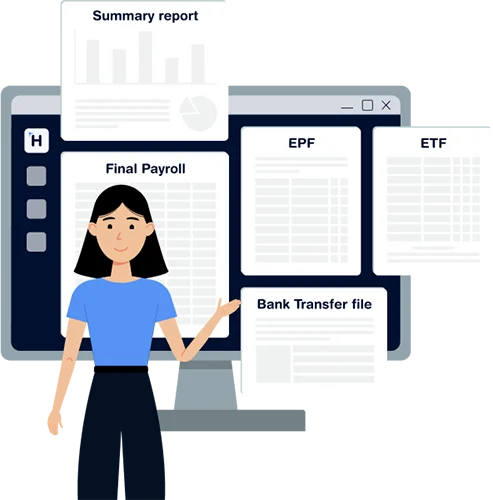As SMEs expand in size, managing employee data securely becomes just as important as managing it efficiently. From payroll details to contracts and performance reviews, sensitive employee information is often scattered across spreadsheets, email threads, and shared folders, a setup that puts data privacy at risk.
This is where HR software with role-based access control (RBAC) comes in. It ensures that only the right people see the right information, reducing the chances of data misuse, accidental leaks, or compliance violations. For small businesses looking to build trust and operate professionally, understanding how this works is critical.
Let’s look at how modern HRIS software can support role-based access and protect employee data within a growing small business environment.
What Is Role-Based Access in HR Systems?
Role-based access allows system administrators to assign permissions to users based on their job function or level of responsibility. For example:
- A payroll officer may only access salary, EPF/ETF, and tax data.
- A team supervisor might only see leave balances and attendance records for their team.
- A director or business owner may have full access to all HR reports.
This approach ensures that sensitive information like salaries, personal documents, or resignation letters isn’t visible to everyone with access to the system.
Why Is This Important for SMEs in Sri Lanka?
In small teams, employees often wear multiple hats. It’s not uncommon for the finance lead to handle payroll, the office admin to help with onboarding, and the owner to sign off on leaves. But as the business scales, this informal access can become a liability.
Here’s why SMEs need to take role-based access and data privacy seriously:
- Reduces human error: Limits accidental data changes or deletions.
- Prevents overexposure: Avoids giving junior staff access to confidential documents.
- Protects employee trust: Ensures employees know their data isn’t freely accessible.
- Ensures compliance: Supports local and global data protection practices, which are increasingly important in client-facing sectors.
Examples of Role-Based Access in Action
A typical Sri Lankan SME might have the following access setup in their HRIS:
- Admin Role: Full access to all modules, including settings, payroll, and reports.
- HR Executive Role: Access to employee records, onboarding forms, contracts, and leave data.
- Team Manager Role: Access to only their team’s attendance and leave schedules, not salaries or personal documents.
- Finance Role: Access to payroll data, salary slips, and statutory calculations like EPF/ETF and APIT.
- Employee Role: Limited to viewing their own profile, payslips, leave requests, and available balances.
Such segmentation ensures transparency without compromising privacy.
Other Privacy and Security Features SMEs Should Look For
Beyond access control, here are other features that good HR software should offer:
- Audit Trail: Logs every change made to employee data, including who made it and when.
- Encrypted Data Storage: Protects personal and payroll data from unauthorized access.
- Two-Factor Authentication (2FA): Adds an extra layer of login security.
- Document Restrictions: Prevents downloading, editing, or printing of sensitive files for unauthorized users.
These features offer peace of mind to business owners, especially when dealing with audits, Labour Department checks, or employee disputes.
Build Trust Through Smart Data Practices
Handling employee data responsibly isn’t just about ticking a compliance box, it’s about building a work culture where employees feel respected and protected.
When SMEs use HR software with built-in role-based access, they show a commitment to professionalism. They reduce the chances of internal data leaks, improve HR efficiency, and create an environment where data is safe, processes are clear, and access is controlled.
Even small businesses with just 10 to 20 staff can benefit from these practices. And the sooner you implement them, the smoother your HR operations will be as your company grows.



